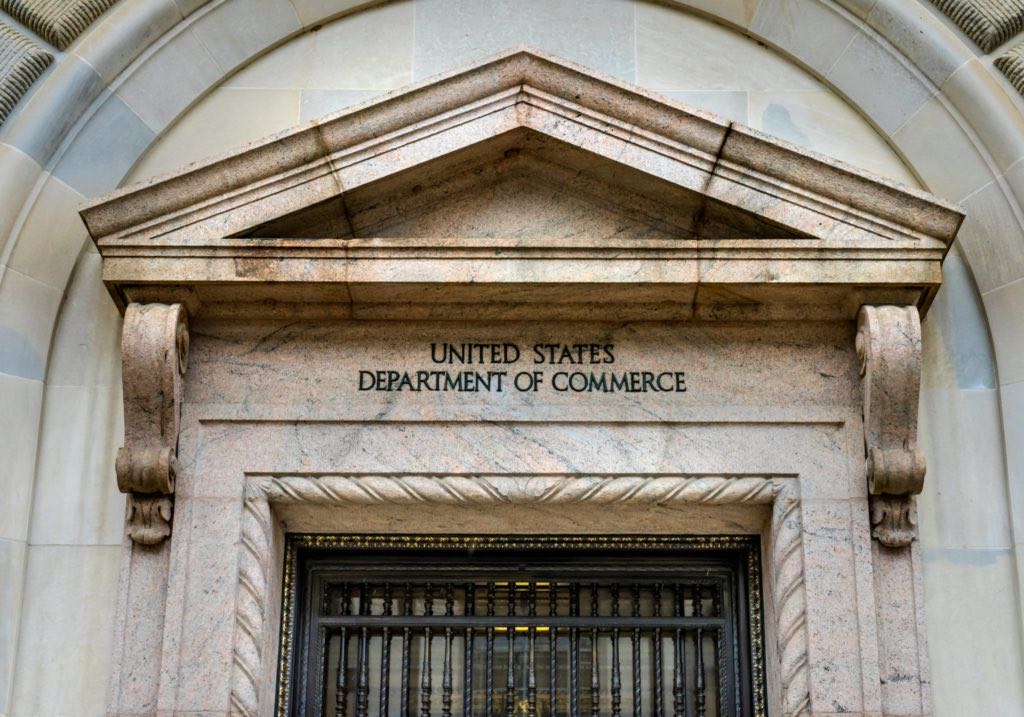
Op-ed: How Biden’s Competition Agenda Will Lower Prices, Raise Wages, and Help Small Businesses
Jun 27, 2022
Op-ed: How Biden’s Competition Agenda Will Lower Prices, Raise Wages, and Help Small Businesses
[email protected]
Mon, 06/27/2022 – 17:27
FOR IMMEDIATE RELEASE
Publication
Yahoo Finance
Monday, June 27, 2022
Office of Public Affairs
Gina Raimondo is the 40th U.S. Secretary of Commerce. Cecilia Rouse serves as the 30th Chair of the Council of Economic Advisers. Brian Deese serves as the Director of the National Economic Council.
Congress recently answered President Biden’s call for reform in the State of the Union by passing bipartisan legislation to crack down on excessive fees and other unfair practices in the ocean shipping industry. Addressing these unfair business practices is just the latest success in the president’s agenda to restore healthy competition — the foundation of capitalism — to America’s economy.
Good things flow when firms must compete: innovation, new business models, increased resiliency, and creative ideas. And yet, the U.S. economy has become increasingly concentrated over the past 20 years.
Lack of competition hurts everyday Americans in multiple ways. First, it can raise the prices facing consumers. Some of the best evidence we have on the effects of competition comes from looking at what happens to prices after a merger. A review of hospital mergers found they typically led to a 20% price increase for hospital care in already concentrated markets. A study of airline mergers similarly found that prices increased between 7.2% and 29.4% in markets where the merging airlines previously competed directly.
Second, a lack of competition can hurt workers. When there are fewer employers competing to hire and retain workers, employees tend to have lower wages and less bargaining power. A recent report from the Department of Treasury found that lack of competition is associated with wage declines of approximately 20% relative to the wages in a fully competitive market. And restrictions on workers trying to find new jobs — like non-compete agreements, which bind nearly one in five workers — can contribute to artificially keeping wages down.
Third, markets without robust competition can be less resilient and more prone to painful shocks. Consider the baby formula supply disruptions: earlier this year, a major plant shut down because of safety issues in formula production. But because the firm that owns the plant controls nearly 50% of the formula market, there were few alternatives to fill the void. Or consider the highly concentrated meat processing industry, in which just four firms control over half the markets for beef, poultry, and pork. A May 2021 cyberattack on the country’s second largest meat processing firm forced a three-day closure of 25% of beef and 20% of pork processing capacity nationwide. The result was a dramatic increase in national beef and pork prices.
Finally, competition increases incentives to innovate. When markets are open to entrants and firms are forced to compete with each other, all firms are compelled to come up with better products or more efficient ways of delivering services. Research shows that more competition produces more innovation and larger productivity gains — two keys to generating sustainable and inclusive economic growth.
President Biden’s competition agenda aims to address these problems. Last July, he signed a historic Executive Order on Promoting Competition in the American Economy. The order directs agencies to use every tool in their toolbox to promote competition — and outlines 72 specific initiatives to lower prices and increase wages, while spurring innovation, productivity, and resilience.
These efforts are meant to spur long-term change rather than be a primary tool to address near-term inflation. While specific, highly concentrated industries have the market power to raise their prices and profits over and above their rising costs, the president’s desire to promote more competition in the American economy long predates the global inflation challenge we now confront.
Already, we are seeing progress from the administration’s efforts. The Federal Trade Commission, collaborating with the Department of Defense, stopped a $4.4 billion defense merger, saving taxpayers from paying billions extra on defense contracts and protecting our national security. The FTC also sued to stop a $40 billion merger between two companies in the semiconductor industry that could have reduced our capacity to produce semiconductors at a time when we already face acute supply chain vulnerabilities. And the Department of Justice blocked a $30 billion insurance merger that would have meant higher costs for businesses and, ultimately, consumers.
Other agencies have launched dozens of major initiatives to promote competition — from the Federal Communications Commission and the Department of Commerce’s efforts to increase competition in broadband, to the Department of Agriculture’s effort to support new competitors in the highly concentrated meat-processing industry, to the Department of Health and Human Services’ initiative that will allow hearing aids to be sold over-the-counter for a fraction of their current cost.
More competitive markets are not a partisan issue. Each of the initiatives mentioned has bipartisan support, reflecting the broad consensus on the President’s competition agenda. And each of these efforts is grounded in an economic analysis of the market and industry. They don’t simply assume bigness is bad. Efficiencies of scale are an important element of any competitiveness assessment.
Reversing the decades-long trend towards consolidation will take time, and there’s still much more work to do. That’s why in the months and years ahead, we’ll continue working across the federal government to drive forward President Biden’s promise to restore competition — delivering lower prices for consumers, higher wages for workers, a fairer playing field for small businesses and entrepreneurs, and more innovation and productivity in our economy. Building out the economy from the middle demands that we continue these efforts.
Tags
Secretary Gina Raimondo
U.S. economy
Bipartisan Legislation
Read the full report from the U.S. Department of Commerce: Read More



